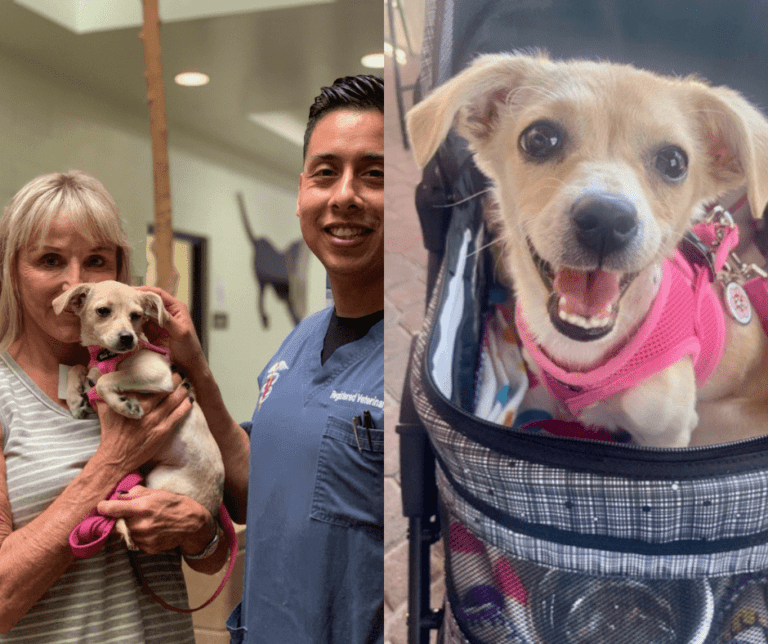Dog Depression: How to Diagnose and Treat a Sad Dog

This article contains affiliate links. Found Animals receives a portion of the proceeds from every purchase made after clicking on the links. These profits go toward saving more homeless animals!
It’s not unusual to hear that a friend or family member is struggling with the blues. Depression is common and referred to by doctors as “the common cold” of mental illness, since it’s experienced by many but frequently very easy to treat. Many animal experts believe the same can be true of our canine pals when they experience chronic sadness. Here is our guide to dog depression!
How to Diagnose Dog Depression
Dog depression is tricky to pinpoint without the help of a veterinarian. A case of canine blues will manifest a lot like a physical illness. If you recognize any of these signs or symptoms of dog depression, you should call your vet immediately. While these characteristics could just be the sign of a sad dog, they could also indicate a physical condition that requires medical attention:
- Fatigue
- Increase or decrease in appetite
- Change in sleeping habits
- Withdrawal from things they love
Again, contact your vet if your pup exhibits any of these symptoms. A professional can rule whether your pooch’s troubles are physical or mental and recommend treatment.
Why Is My Dog Depressed?
The first thing to do if your dog is diagnosed with depression is to figure out the cause. While humans might have situational or chemical depression, dogs usually get depressed after a major life change. In other words, usually pups have situational depression and their change in mood is a result of something happening in their environment.
So why is your dog depressed? Look to see if they’re going through any kind of big life transition. It’s not unusual for pooches to be sad after changing owners or maybe the death of their doggie sibling. Some dogs, like a child, might also be jealous of a new baby in the home.
How to Cure a Sad Dog
Treating depression in dogs is very similar to treating depression in humans. A good starting place is to keep your dog busy and treat them to the things they love. Extra car rides or trips to the dog park are good ways to boost morale. Exercise can also result in a healthy body as well as a healthy mind. And doing activities with your dog can help cure chronic loneliness and jealousy. If you’ve recently lost another pet, you might want to consider adopting a new friend for your dog. Experts believe that canines grieve just like humans do and they might be struggling to cope with the recent loss. Showering your dog with attention and love will help to alleviate his or her anxiety and make them feel good about life again!
Consider an over-the-counter herbal supplement that will boost your dog’s mood delivered in the form of a treat. There are plenty of products available for pets that help with depression, anxiety, aggression and other mood disorders. These treats taste great (according to our office dogs), work almost immediately and are relatively inexpensive.
If none of these seem to help with your dog’s depression, speak to your veterinarian. Like we said, it’s possible that your dog is physically sick and is acting down because he or she doesn’t feel well. Once the vet eliminates illness as a cause, they can recommend other treatments, including medication to help alleviate your doggie woes.


